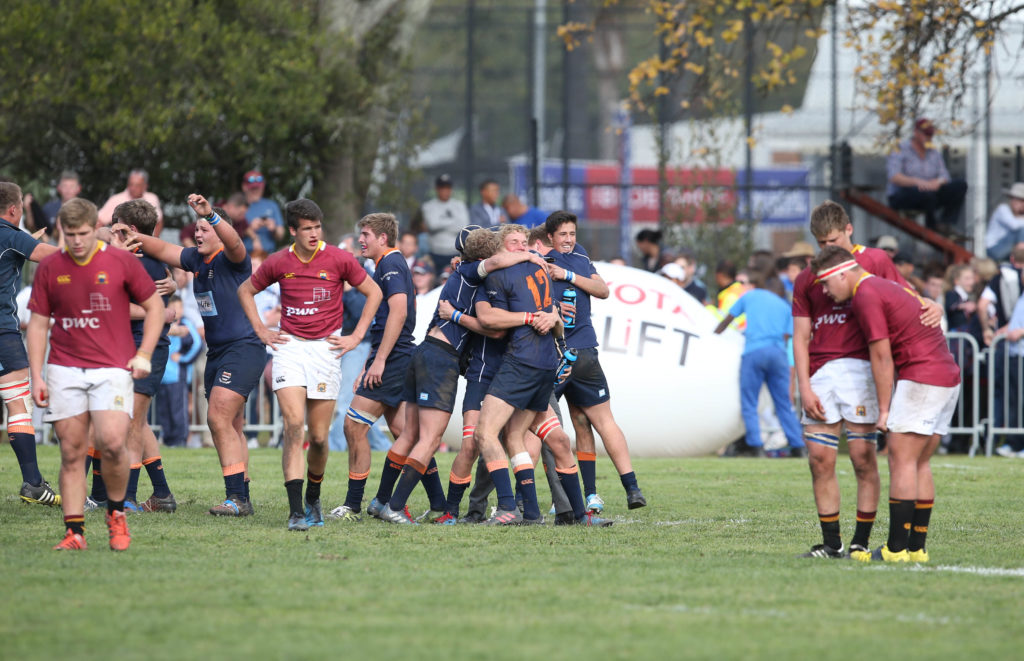Rugby, especially at schoolboy level, has a culture problem, not a drug problem, writes RYAN VREDE.
In early March the BBC ran a story painting a bleak picture of deep ambition, lax policing, condoned cheating and immense pressure exertion on South African schoolboy players, suggesting those things (among others) were at the heart of what they strongly intimated was a drug crisis.
Schools doping: A dangerous cocktail
Former Wales star Gavin Henson spoke candidly about steroid use in the game, telling WalesOnline: ‘The rule that should be in place is if you get caught taking drugs it should be a jail sentence, because you are stealing a living.’
Shortly after, a friend told me his 13-year-old son, a gifted sportsman, had been offered a full sports scholarship by two prestigious Cape schools. Both wanted him to play rugby and went to extraordinary lengths to convince him theirs was the best place to go.
There were a couple of obstacles. Firstly, neither school was less than 25km from their family home. My friend works in the CBD, making the daily commute a brutal 70km. ‘No problem’, they said, ‘we’ll give you a petrol allowance until he is ready to move into the boarding house.’
The second issue was the kid had settled in at his current school and his parents were concerned about him having to form new bonds in Grade 7. ‘Not an issue, bring a friend along,’ came the answer from one of the schools.
They wanted him so badly he was allowed to bring his best mate, who was also handed a full scholarship, including boarding, despite being average in the classroom and on the sports field. Nonetheless, that sealed the deal.
This approach pales in comparison to the lengths schools will go to to land a player who could be a future Springbok.
For example, there is a current Springbok World Cup winner who’s parents each got a brand new SUV for convincing their son to play rugby at a particular school. A former Bok’s family was offered a generous relocation package, including an apartment and jobs, if they moved him from Pretoria to Cape Town. They declined only because a mind-blowing counter-offer rolled in from the boy’s current school.
Stefan Terblanche column: Age of destruction
I asked my friend’s son how things were going at his new school. He told me he wasn’t coping with the academics, not because he isn’t bright, but because he gets to class exhausted after their 6:30am training sessions. Then he has to do it again after school. He says the coaches condition them to think rugby must consume you if you want to make the provincial sides for the bigger schoolboy tournaments. He said the first XV have it worse because they are focused on churning out players who will make the grade professionally.
It got weirder when he spoke about the lengths some of the kids go to to live up to the expectations of the coaches. It got even weirder when he spoke about the pressure the parents exert. Combine this with the kid’s own burning ambition, spice it with agents in their ear and you have a dish that will make you terribly sick.
Despite what oom Wikus will tell you, rugby isn’t life, it is only a small part of it and it’s elevation to anything beyond that is dangerous. This is true for any profession. What we do professionally shouldn’t define who we are. But it does for many people, and when those affected by this toxic mindset are impressionable and emotionally immature kids, the results can be devastating.
A culture of excellence designed to build the very best players is laudable and necessary for the strength of South African rugby. When that culture conditions you to believe you are a rugby player first and a human being second, it’s anything but encouraging. Not every player is prone to surrendering to the pressures exerted on him and not every coach and parent has this toxic influence on their players and kids, but a large enough percentage do.
Change must be driven from within and it will only happen if there’s an acknowledgement of the problem and a commitment to remedy it.
Photo: Bertram Malgas/Gallo Images





